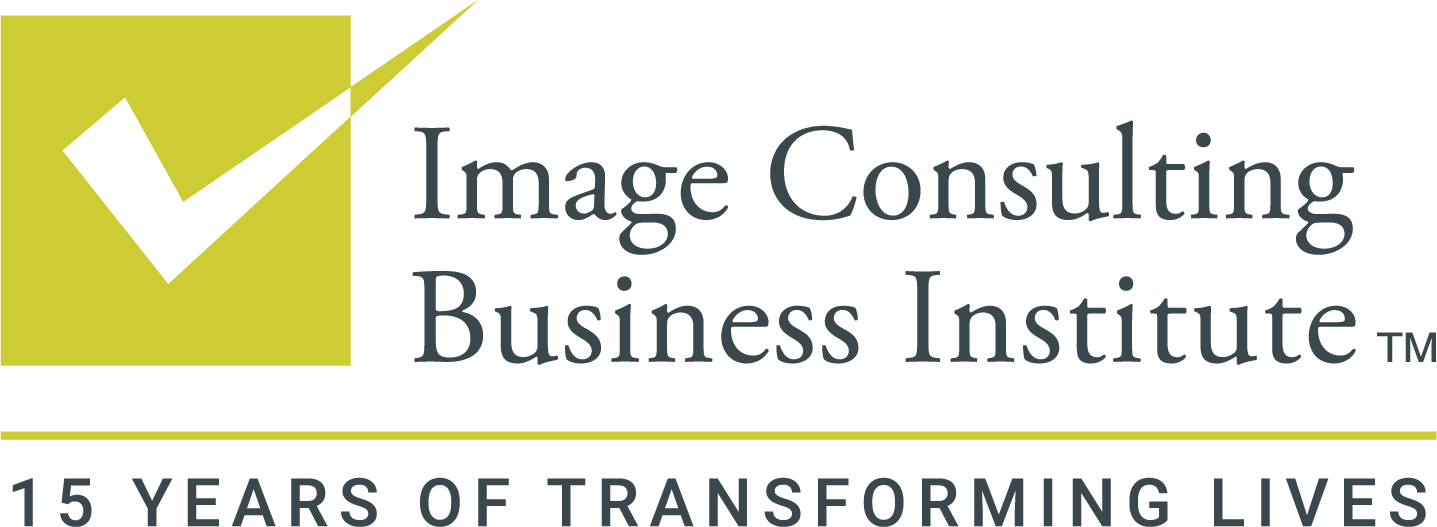Soft Skills Training – 6 Key Soft Skills for Your Workforce

In the dynamic modern workplace, technical expertise is no longer enough. Soft skills, the interpersonal abilities that shape how individuals approach work and life, are now essential for success.
This guide explores the significance of soft skills, their distinction from hard skills, and the impact of soft skills training on the workforce. Discover the benefits of investing in soft skills training, fostering better communication, efficiency, productivity, and teamwork in the digital-first world.
From communication and teamwork to problem-solving and time management, we uncover the top soft skills that drive employee performance and contribute to organizational growth. We’ll also outline effective training methods, from mentoring and workshops to peer learning and online courses.
Whether you are an employer seeking to enhance your workforce or an individual striving for personal and professional growth, this article serves as a comprehensive guide to unlocking success through the power of soft skills training.
What are Soft Skills?
Soft skills are interpersonal skills that represent your approach toward work and life. These personal qualities and attributes enable individuals to interact effectively with others in various social and professional settings. Soft skills are often hardwired into an individual’s personality. They help you navigate different workplace situations where conversation and collaboration are required.
Consider them as people skills where that are absolutely necessary for the long-term success of an organisation. Almost every employee requires soft skills to communicate within and outside the organisation.
Soft Skills vs Hard Skills
Consider soft skills more personality-focused, while hard skills are generally more based on the job. Hard skills are different for each job you choose, while soft skills are more social, people, and interpersonal skills that cover topics such as communication. Soft skills focus more on your character, while hard skills are job-specific and will come to you with training, certifications, and experience.
| Soft skills | Hard skills |
|---|---|
| Experience-based | Rule-based |
| Related to people | Related to technology |
| Attitude-based | Mechanical or industrial |
| Not specific to a domain | Specific to a domain |
| General | Methodical and procedural |
| Trans-situational | Replicable |
| Non-technical | Predictable |
| Intangible | Tangible |
What is Soft Skills Training?
Soft skills training refer to the process of developing and honing those intangible qualities that enhance your interactions, relationships, and overall effectiveness in the workplace (and beyond that). These skills include communication, teamwork, adaptability, problem-solving, emotional intelligence, leadership, and time management.
Soft skills training aims to enhance and refine soft skills required for succession at the workplace through targeted learning activities and practical exercises. Workshops, seminars, coaching sessions, and even online courses are common avenues for such training.
What are the Benefits of Soft Skills Training?
While this digital-first world is causing more demand for specific hard skills, it doesn’t mean soft skills are completely out of the picture. In fact, this is the time when soft skills training have seen a soaring rise in its numbers.
Soft skills are known to play a significant role in the growth of an organisation, and soft skills training aid in adding more benefits to the company as well as employees:
1. Better Communication, Efficiency, Productivity, and Teamwork

With soft skills development, employees can collaborate better and work together more efficiently to meet the objectives and goals of the organisation. This, in turn, increases employee productivity and helps bridge communication gaps.
2. Strong and Empathetic Leadership

Developing soft skills is essential in a workplace when it comes to leadership. Leaders with great interpersonal skills and emotional intelligence are more likely to get the best out of an employee by building valuable relationships and understanding their wants and needs. They are better at delegating tasks, accepting and providing feedback, taking responsibility, and motivating employees.
3. Better Problem-solving Skills

Soft skills development comes with the advantage of proactiveness. Employees will feel more proactive regarding problem recognition during their goals, tasks, and projects. Organisations will benefit as employees gain the power to make the right judgement and implement the correct solution after identifying the problem.
4. Improved Critical and Creative Thinking

Another advantage of soft skills training for employees is that it allows working individuals to think out of the box regarding critical and creative thinking. These skills can help employees make better decisions, analyse the situation, and achieve better results.
5. Enhanced Customer Satisfaction

While the best customer service comes with hiring people with the appropriate skills, soft skills development can significantly help improve customer service standards. For example, with soft skills, employees can learn empathy, and with heightened empathy, team members can solve customer issues by expressing empathy and understanding their problems, leading to customer satisfaction.
6. Higher Employee Retention

Like any certification course, a soft skills development program can also indicate that the employer is willing to invest in employees’ up skilling. It throws the organisation in a good light and assures the employees that the employer is willing to value their employees, increasing employee retention rate.
Top Soft Skills That Will Improve Your Employees’ Performance
As established, the development of soft skills comes with various benefits. But what are some of the most crucial soft skills that need to be taught to enhance your employee’s performance?
1. Leadership
Employees are more likely to leave an organisation because of bad leaders than they would because of a bad company. So, if you don’t want to lose your integrity with a bad employee retention rate, don’t ignore a good leadership role in the organisation.
| What Is It? | Key Competencies | Why Train Your Employees? |
|---|---|---|
| It helps people guide others to fulfil the organisation’s mission and goals. |
| Employees can accept, provide, and delegate actionable feedback, motivate themselves to do better, and take responsibility. |
2. Communication
The next important soft skills in the corporate world are communication. Miscommunication can lead to further complications in the process. Through soft skills development training programs, professionals can learn how to communicate effectively by paying closer attention to finding the core solution to problems through active listening.
| What Is It? | Key Competencies | Why Train Your Employees? |
|---|---|---|
| Written or oral communication skills that push effective results in the workplace. |
| Employees can communicate effectively within the team and with clients, yielding more desired results. They’ll be able to express their thoughts clearly and achieve better outcomes. |
3. Teamwork
An organisation is only as successful as the collaboration between its team members. A healthy growth culture in corporate is fuelled by successful teamwork between different team members, and there’s no room for jealousy or unhealthy competition. Through soft skills training, your employees can learn to become great team players.
| What Is It? | Key Competencies | Why Train Your Employees? |
|---|---|---|
| It demonstrates the skills to delegate tasks and successfully plan time according to the work. |
| Employees will be empowered to work towards their goals more efficiently and improve their productivity. |
4. Time Management
Time management is another soft skills training topic that needs to be covered for the success of an organisation. Since time is money, time management is considered to be one of the most essential soft skills every working individual should possess.
| What Is It? | Key Competencies | Why Train Your Employees? |
|---|---|---|
| Allows employees to operate well in a team. |
| Employees can establish healthy relationships with their co-workers and work more effectively as a team. |
5. Problem-solving
A skilled problem-solver in the organisation can successfully solve every problem by quickly assessing and adjusting to changing circumstances, generating innovative ideas, and thinking creatively.
| What Is It? | Key Competencies | Why Train Your Employees? |
|---|---|---|
| It helps in finding creative solutions through analytical and creative thinking. |
| Employees will be more proactive during project roadblocks and problem recognition by implementing better solutions. |
6. Critical Thinking
Employees who can process and evaluate information and make decisions accurately save the organisation efforts and cost. With the soft skill set of critical thinking, your employees can spot the team’s pain points, innovate in the field, and improve the working process.
| What Is It? | Key Competencies | Why Train Your Employees? |
|---|---|---|
| Allows your employees to effectively analyse information, assess the solution, and reach the goals without getting influenced by emotions. |
| Employees are pushed to think outside the box, weigh the pros and cons, and make accurate and informed decisions. |
How to Conduct Soft Skills Training?
Soft skills training are essential in a workforce where you need your employees to grow and come up with solutions. There are various options for initiating a soft skills development program in your office. Here are some ways you can pursue it:
1. Mentoring

Hiring a soft skills coach or a mentor is great if your employees need to develop their soft skills for the work setting. The coaching process will typically comprise helping employees target, identify, and plan their tasks for optimised performance.
This is how to conduct soft skills training with the help of a coach or a mentor:
• The coach will define the employee’s goals, strengths, weaknesses, and skill sets.
• Then the employees are made aware of their weaknesses.
• The coach/mentor then makes a strategic plan to help the employee work through achieving success in that skill.
• During the succession of this strategy plan, the coach guides the employee and provides valuable and actionable feedback.
2. Live Workshops

Live interactive workshop is another great soft skills training method for a group of large employees that need to be made aware of the importance of soft skills. These workshops are best when they have an action-oriented purpose to find solutions to the current problems in the industry.
For example, if you want to teach your customer service staff the right ways to resolve conflicts with customers, workshop sessions focusing on role-playing scenarios can be helpful in this matter. This interactive session allows the soft skills trainer to spot the skills gap and help you bridge it.
3. Peer Learning

Informal learning can be the best kind of soft skills development training for employees. With peer learning, employees can learn how to build their soft skills by collaborating. You can either have small-scale projects or activities requiring the entire team to work together or perform social learning through social apps. For example, you can start a discussion forum online where the employees can discuss their problems regarding any soft skills they have, and others can answer and help them grow.
4. Online Learning

Online learning is the new trend. This is a great soft skills development option, as your employees can learn at their own pace. They don’t have to stay restricted on someone else’s time and can resume their learning journey according to their time limits.
Several online learning platforms offer great soft skills training courses with corporate packages. But with all these options, how to choose the best one?
The best online soft skills program contains real-life issues related to soft skills and the solutions to tackle them. An online soft skills training course should contain real value by adding dialogue simulation perfect for teaching communication skills and other competencies. A dialogue simulation is similar to role-place scenarios where virtual interactions occur between actual people.
5. AR/VR

Augmented reality (AR) and virtual reality (VR) are some modern-day tools that can be used to develop your employee’s soft skills. These technology-enabled tools help in replicating real-life situations that the employees can possibly face and also train them on how to deal with the situation in the best manner possible.
Become a Certified Soft Skills Trainer Yourself!
While hiring a soft skills trainer is great, becoming an in-house trainer at your organisation has several benefits. An in-house soft skills trainer can:
- Tailor the training programs to align with the specific needs and goals of the company
- Prove to be more cost-effective for the company in the long run
- Be readily available to address the training needs of employees on an ongoing basis
- Possess in-depth knowledge of the company’s products, services, processes, and industry
With ICBI’s Soft Skills Trainer Certification course, you can get certified and choose to become a corporate trainer to fulfill the purpose of soft skills training for the company while also advancing your career and domain of knowledge.
Know More
FAQs:
1. Are soft skills in demand?
Soft skills are now more in demand than ever before. With the recent hike in the number of employees changing companies for better growth opportunities and the great increase in lay-offs this year, more employees are willing to hone their soft skills to keep their job secured and even gain better ones for career growth.
Approximately 93% of employers say they are looking for candidates with the right soft skills, but not many focus on sharpening their skills. Further, research by LinkedIn stated that most companies are now focused on looking for candidates with the most sought-after skills. But 75% of employers find it difficult to find the right employee with a mix of technical and soft skills in the global shortage of the right talent.
2. What are the three Rs in soft skills?
According to experts, Reasoning, Responsibility, and Resilience are the three Rs that can solve problems and attain success. Learning these three Rs of soft skills is essential to succeed in a career and help an organisation grow.
3. Can you learn soft skills online?
You can learn soft skills online with ICBI’s Soft Skills Trainer Certification course! You can even encourage an employee from your organisation to get certified and become a corporate trainer for the company for more customised and tailored soft skills training efforts for your organisation.
